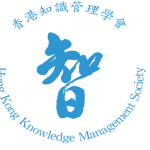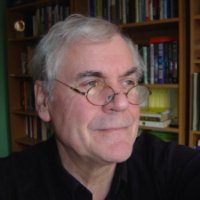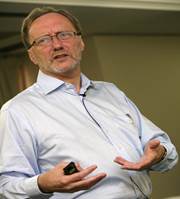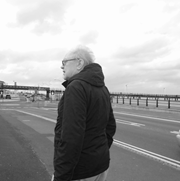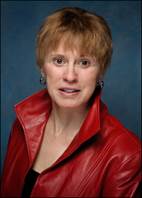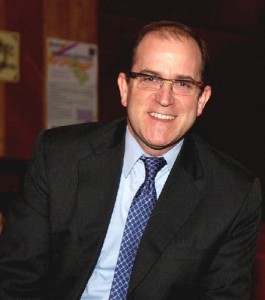Organised by
The next meeting of the Society, held in partnership with the KMIRC of The Hong Kong Polytechnic University, will be a half day KM Conference held at the Theatre , 22/F United Centre, Admiralty. We’re delighted to welcome KM thought leaders , Dr. Nancy Dixon, Ron Young, David Gurteen and Professor Peter Woods from the USA, UK and Malaysia.
All of those with an interest in KM, organisational learning, leadership should take the opportunity to listen to international thought leaders.
Speakers : Dr.Nancy Dixon, Ron Young, David Gurteen and Professor Peter Woods.
Date : Friday ,14th November, 2014,
Time: From 9:00am – 1:00pm
Location: Theatre, 22nd Floor, United Centre, Admiralty (Admiralty MTR Station)
The charge for event is HK$1500 for members and HK$$1900 for non-members. Please complete the registration form to reserve your seat, spaces are limited. Further details and full agenda can be found below.
Detailed agenda, bios and talk details can be found below.
08.30 am Registration begins
09.00 am Welcome from the Organisers
Les Hales – President of HKKMS & Prof. W B Lee – Director of KMIRC of The Hong Kong Polytechnic University
9.15 am -10.45 am KEYNOTE PRESENTATIONS I & II
I. The Future of KM
Ron will reflect on the KN journey so far and then go on to predict the next ten years of knowledge management.
In his keynote he will
- summarise and briefly share an earlier prediction and examine what actually happened
- discuss what we may learn from this
- present his predictions and trends for KM
- lead a discussion with the participants
Ron Young’s presentation on “The Future of KM (900kb) can be downloaded here
II. Conversational Leadership
Conversational Leadership is a style of working where everyone in an organization understands the transformative power of conversation and takes a conversational approach to the way that they connect, relate and work with each other.
- They modify their behaviours to take a conversational approach to the way that they work.
- They are conversational catalysts and purposefully nurture and stimulate the natural conversations that take place in the organization.
- They help build a strong social fabric and sense of community by connecting people and helping them build relationships with each other.
- They practice daily conversational methods such as peer assists, after action reviews and knowledge cafés.
- They are “conversational architects” – they identify the strategic conversations that need to take place in the organization; the questions to trigger them and design the processes to convene and host them.
David Gurteen’s presentation on “Conversational Leadership (5MB) can be downloaded here”
10.45am – 11.15 am **COFFEE AND NETWORKING BREAK**
11.15am – 12.45 am KEYNOTE PRESENTATIONS III & IV
III. Applying KM to protect cultural heritage
We are very careless with old things, such as old buildings and old people.
Some important post-independence architecture in Malaysia has disappeared. Historical buildings that could have been archived as national heritage have been demolished, or are tagged for demolition. Suleiman Courts, the first high-rise residential buildings in Kuala Lumpur were demolished in 1986. Even the first drive-in restaurant in Malaysia is tagged for demolition regardless of the memories of its loyal fans. Other historical buildings are deteriorating in use without considering the importance of preservation. One example is the oldest geology department in Malaysia located in University of Malaya, Kuala Lumpur, which had a unique method of construction at the time it was built. The building is still in use but has been insensitively modified from its original state. In this situation digital archiving seems to be an alternative that at least keeps the record of a historical building before it is too late.
A project ‘Malaysia Post-Independence Architecture Atlas’ is being carried out by Multimedia University, in collaboration with the University of Malaya. This project aims for available data to be digitally captured and archived for future purposes. In the first stage 30 target buildings (selected based on their cultural importance) were successfully archived. The main priority after digital capture was to categorize the collected data in a way that can be used by different audiences. This presentation will describe the capture and archiving process, the current concern for inclusion of the public in the process, and the need for a community of practice to energise the process.
Peter Wood’s Presentation on Heritage(2.8MB) can be downloaded here
IV. Collective Sensemaking: The heartbeat of the organization
Collective Sensemaking is a new way of thinking about addressing complex organizational issues, for example how to merge two cultures or how to refocus an organization from selling products to selling service.
It brings multiple perspectives to an issue, greatly increasing the possibility of developing innovative solutions. Like the heartbeat that circulates the blood in our bodies, collective sensemaking circulates and makes use of the knowledge of the organization. And just as a regular heartbeat is vital to our health, a regular coming together of a unit is necessary for coordinated action toward a joint goal. Drawing on the collective knowledge is not a one-time event, but a new way of working, that oscillates between action and collective sensemaking.
In this session, Dr. Dixon will provide brief case studies of several collective sensemaking organizations.
Nancy Dixon’s presentation on Collective Sensemaking can be downloaded here (1.2MB)
12.45pm – 1.00pm CLOSING REMARKS
Speaker Bios
Nancy Dixon
Dr. Nancy Dixon is a researcher and consultant. She facilitates small and large scale learning events that involve cross-boundary stakeholders who are facing complex issues. She helps organisations move beyond a series of presentations to engage people in active learning processes. Her facilitation skills and processes are able to bring together disparate groups and individuals so that they can fi nd common ground and achieve breakthroughs in performance. She draws on techniques from large group processes including Appreciative Inquiry, Open Space Technology, Knowledge Café, and Future Search to tailor a design to purpose
Ron Young
Ron Young is the CKO of Knowledge Associates International Ltd, based in Cambridge U.K. He is acknowledged as a leading international expert and thought leader in collaboration, learning, knowledge management (KM), and innovation. He advised and assisted the UK DTI Innovation Unit in 1999 in the production of the UK Government White Paper ‘UK Competitiveness in the Knowledge Driven Economy’. He has extensive experience in working with European, Asian, and US organisations. He has chaired both the British Standards Institute (BSI) Knowledge Management Standards Committee for three years until 2003 and the European CEN Knowledge Management Standards Committee for two years until 2004
David Gurteen
David Gurteen is well known globally as an advocate for more conversation in our organisational lives and as the creator of the Gurteen Knowledge Café – a powerful conversational tool for bringing people together to have meaningful conversations. He is the founder of the Gurteen Knowledge Community, a global network of over 21,000 people in over 160 countries whose purpose is to connect its members with like-minded people, new ideas, and alternative ways of working. Members receive his free monthly Knowledge- Letter that is now in its 13th year. David curates the Gurteen Knowledge website gurteen.com – a resource site that contains book reviews, articles, people profi les, event calendars, inspirational quotations, an integral blog, and much more on subjects that include knowledge management, informal learning, creativity, and innovation.
Professor Dr. Peter Woods
Dr. Woods is the Professor of Knowledge Management in the Faculty of Creative Multimedia, Multimedia University, Cyberjaya. He is responsible for postgraduate research and taught courses in Knowledge Management and e-Learning applications and strategies. He is chairman of the University level Research Centre i-knowmedia. His initial education was in architecture and from 1995 until 2001 he was Professor of Architecture at Universiti Malaya. Previously he had taught in North London Polytechnic, Sheffield Hallam University, the National University of Singapore and Manchester University. His research and consultancy interests for the past thirty five years have been spread between low energy design, project, contract and knowledge management, and teaching and learning theory. He has been a contributor in 8 books, 4 Government Reports(UK), 30 refereed journal articles, 40 international conference papers, and innumerable local conferences and seminars. He was a member of Malaysia Low Energy Expert Panel, 1996-98, a member of the Low Energy Design Panel, International Energy Agency, 1998-2007, and a Malaysian Representative, Asia e-Learning Network (AEN), 2003-2004He is Hong Kong PolyU Knowledge Management Expert, and a Visiting Professor at Future University Khartoum, Sudan.
